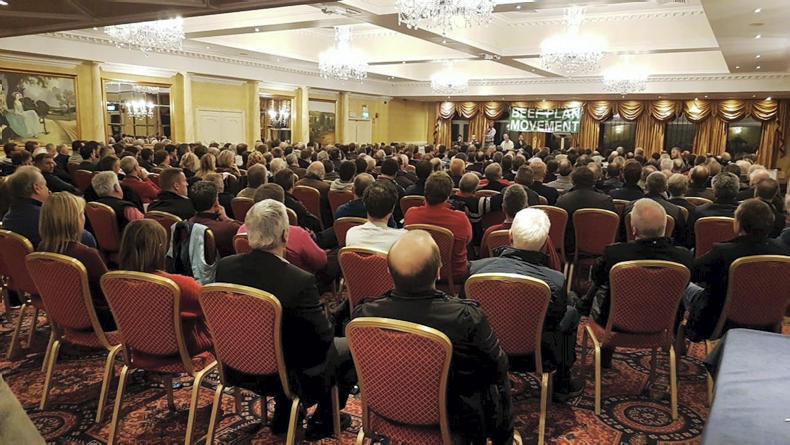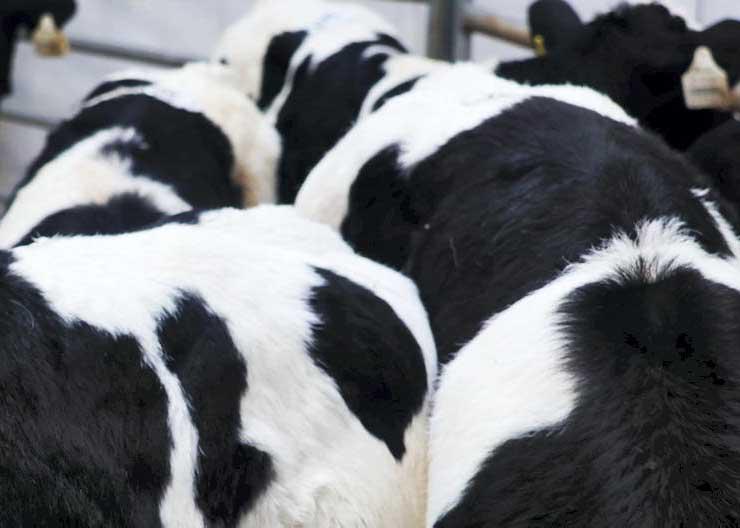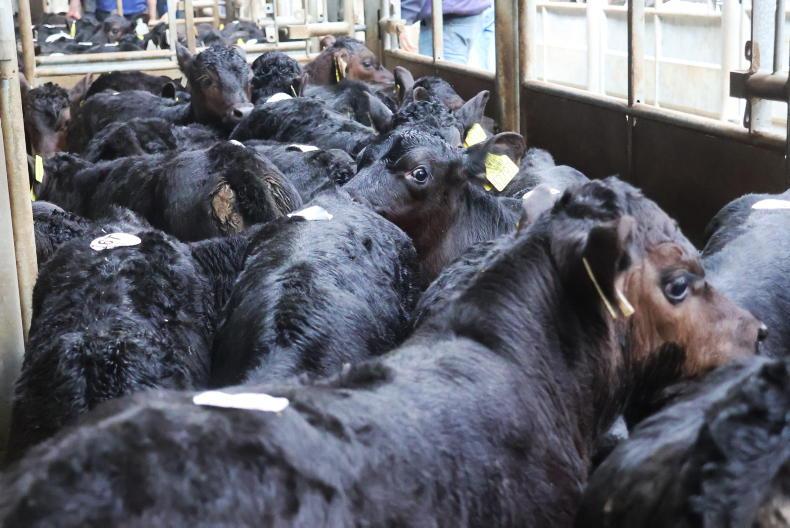An estimated crowd of almost 500 people turned out to the first public meeting of the Beef Plan Movement in Meath since the plan was unveiled at an IFA executive meeting held on 24 September last year.
One of the movement’s founder Eamonn Corley told the crowd gathered that there were a number of “anti-competitive practises” it wanted to see changed to “give farmers a fair chance”.
Speaking to the Irish Farmers Journal after the meeting, he outlined some of those practises.
100km limit
Corley said the 100km limit on the distance category one waste can travel was an issue.
“The way we see it, that limits the number of facilities which can take the category one waste from factories and it plays into the big players’ hand who control most of those facilities.
“We don’t see any need for the take rule and that’s one that snuck in under the radar and should be got rid of.”
Four movement rule
The group is also targeting a change to the four movement rule on cattle, which penalises more than four movements of livestock between farms prior to slaughter.
Corley said: “Every time a farmer brings his cattle to a mart, which is a place farmers see as a place with a bit of competition present, that animal is worth less.
“There’s no evidence to suggest that if your animal moves five times he should be worth less or his meat will be of less eating quality of an animal that moves four times.”
Quality assurance
Corley outlined the group was also seeking changes to the quality assurance scheme.
“It used to never be the case in the past that a finished animal couldn’t go into the mart. What happens today is if a finished animal goes into a mart the person who buys it has to wait 70 days before he can collect the quality assurance.
“That is discouraging finished cattle from going to the mart where there would be multiple buyers and it's forcing the farmer to go straight to the factory where he has little control over the price.”
Factory feedlots
A number of farmers at the meeting raised concerns about “factory feedlots”, which Corley said they wanted to see banned.
“What factories tend to do is bring out these cattle when there is a lot of cattle in the system and they help to collapse the price," Corley stated.
"In America, factory feedlots are seen as a form of insider trading and are banned. We think the same should happen in this country.”
Age limit
The price penalty on steers and heifers slaughtered over the age of 30 months was also raised at the meeting, with calls to increase the limit to 36 months.
Corley explained this group's issue with the rule: “What that does, that rule, is turn a product that is not perishable into a product that is perishable.
"What currently happens in this country is most of the calves are born in the spring, which means in the autumn time two and a half years later they’re hitting 30 months and that’s the perfect opportunity for the factory to cut the price.
"The age limit is helping them do that. In France, the older the cow is, the more taste is off the meat and the higher the omega 3 acids in the meat, it's seen as a better product. It’s not proven that the age limit serves any purpose other than influence the market and the price farmers get.”
Read more
Beef Plan Movement forms a limited company
Six multimillion Beef Plan co-ops proposed
An estimated crowd of almost 500 people turned out to the first public meeting of the Beef Plan Movement in Meath since the plan was unveiled at an IFA executive meeting held on 24 September last year.
One of the movement’s founder Eamonn Corley told the crowd gathered that there were a number of “anti-competitive practises” it wanted to see changed to “give farmers a fair chance”.
Speaking to the Irish Farmers Journal after the meeting, he outlined some of those practises.
100km limit
Corley said the 100km limit on the distance category one waste can travel was an issue.
“The way we see it, that limits the number of facilities which can take the category one waste from factories and it plays into the big players’ hand who control most of those facilities.
“We don’t see any need for the take rule and that’s one that snuck in under the radar and should be got rid of.”
Four movement rule
The group is also targeting a change to the four movement rule on cattle, which penalises more than four movements of livestock between farms prior to slaughter.
Corley said: “Every time a farmer brings his cattle to a mart, which is a place farmers see as a place with a bit of competition present, that animal is worth less.
“There’s no evidence to suggest that if your animal moves five times he should be worth less or his meat will be of less eating quality of an animal that moves four times.”
Quality assurance
Corley outlined the group was also seeking changes to the quality assurance scheme.
“It used to never be the case in the past that a finished animal couldn’t go into the mart. What happens today is if a finished animal goes into a mart the person who buys it has to wait 70 days before he can collect the quality assurance.
“That is discouraging finished cattle from going to the mart where there would be multiple buyers and it's forcing the farmer to go straight to the factory where he has little control over the price.”
Factory feedlots
A number of farmers at the meeting raised concerns about “factory feedlots”, which Corley said they wanted to see banned.
“What factories tend to do is bring out these cattle when there is a lot of cattle in the system and they help to collapse the price," Corley stated.
"In America, factory feedlots are seen as a form of insider trading and are banned. We think the same should happen in this country.”
Age limit
The price penalty on steers and heifers slaughtered over the age of 30 months was also raised at the meeting, with calls to increase the limit to 36 months.
Corley explained this group's issue with the rule: “What that does, that rule, is turn a product that is not perishable into a product that is perishable.
"What currently happens in this country is most of the calves are born in the spring, which means in the autumn time two and a half years later they’re hitting 30 months and that’s the perfect opportunity for the factory to cut the price.
"The age limit is helping them do that. In France, the older the cow is, the more taste is off the meat and the higher the omega 3 acids in the meat, it's seen as a better product. It’s not proven that the age limit serves any purpose other than influence the market and the price farmers get.”
Read more
Beef Plan Movement forms a limited company
Six multimillion Beef Plan co-ops proposed









SHARING OPTIONS